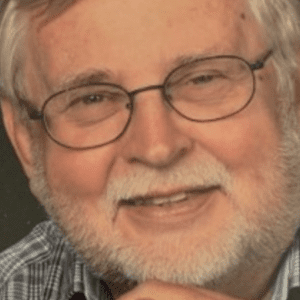May 7, 2021
Looking Back on 50 Years of the APWU with Former Secretary-Treasurer Doug Holbrook
(This article first appeared in the May/June 2021 issue of the American Postal Worker magazine)
Editor’s Note: For the APWU’s 50th anniversary celebration we spoke with former Secretary-Treasurer Doug Holbrook on the Great Postal Strike the merger of five postal unions and the accomplishments the APWU made in the last five decades. Brother Holbrook served as Secretary-Treasurer of the APWU National from 1981-1998 and Retirees Director from 2005-2007. His knowledge and experience were shared with others throughout his tenure and continue to be valuable assets to the APWU.
What was working at the post office like before the 1970 Great Postal Strike and the formation of the APWU in 1971?
That was a very difficult time at the Postal Service. We had constant problems because the wages of postal workers were very very poor. My hourly rate when I went into the Postal Service was $1.81 an hour.
The benefits were bad and the working hours and conditions within the Postal Service were very bad. I don’t have any fond memories of that time period.
How much did the strike contribute to the formation of the APWU?
It is totally responsible for the formation of the APWU. Had we not merged the unions together at that time the Postal Reorganization Act went into effect the only unions that would have existed would have been those that had dues checkoff with the Postal Service. The National Postal Union did not have that.
What was the experience of five crafts coming together? What were the challenges and how were they overcome?
The leadership of the organizations – and I mean all leadership local and national not just one person – were working toward the one goal of making sure we had a cohesive understanding of where we wanted the union to go. Everyone recognized that this was accomplishing our goal and our mission – to come together into one industrial-like union for postal employees.
Our first convention after the merger there was attempts made to dissolve the APWU and not go through with it. There were very heated arguments. Fortunately the APWU National President at the time Stu Filbey worked diligently to make sure that did not happen.
In the end we came together in a large part because all the officers realized that we’re all in this together and that we would accomplish our goal and missions if we all stayed that way. I think we have and I’m very proud of that.
What are some of the APWU’s crowning achievements in the last 50 years?
After the Postal Reorganization Act the union was able to accomplish collective bargaining for our wages and benefits. People do not realize how difficult that was to obtain. We also obtained the right to ratify our contracts which we’d never thought we’d have.
COLA was also something that was attacked rather early in our contract we had a terrible time in the contract negotiations making sure that COLA was in our contract. That was an important part of our benefits that we made sure to always protect.
If you look at wages of postal workers then and now there is no comparison. I would hope that postal workers would recognize even with all the difficulties we have all the things that have gone wrong that they have an opportunity to belong to the greatest postal workers union in the world. Because I do not know of many postal workers in the union – and nowhere in the world – that has been through so many struggles and then conquered so much as the American Postal Workers Union.
Do you feel that the goal of one postal union is still important?
The guiding principle the bright light at the end of the tunnel back in our day is one postal union. Even our constitution emphasizes the fact that we believe in one postal union. That incorporates something that may never be accomplished but it’s a goal. And that maybe becomes even more important today than it has over the years because the numbers and differing experiences are strength. You cannot have strength when you’ve got divisions. I’ve been beating the drums about that even today after 50 years.
Sign up for News



